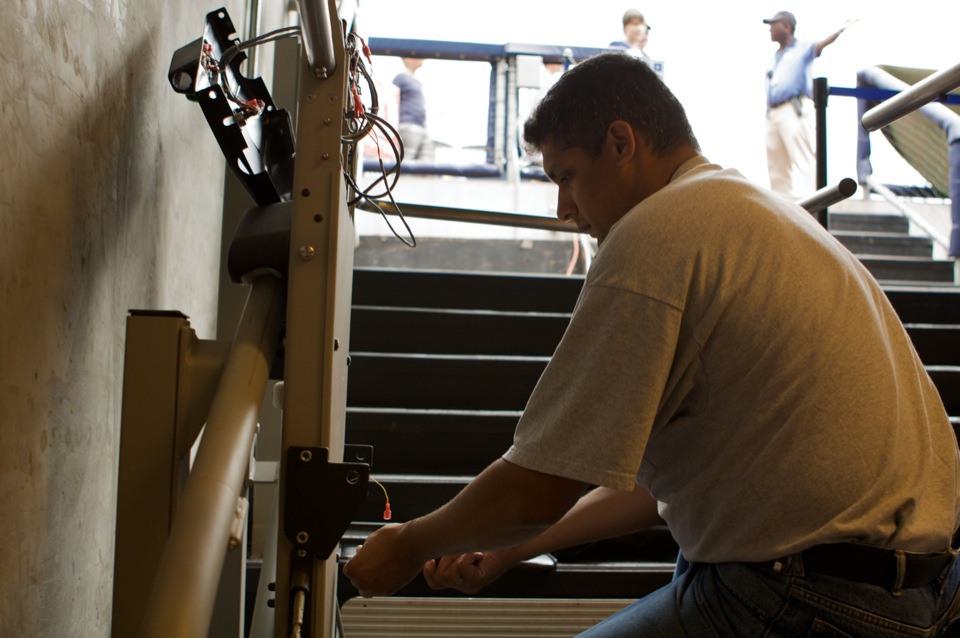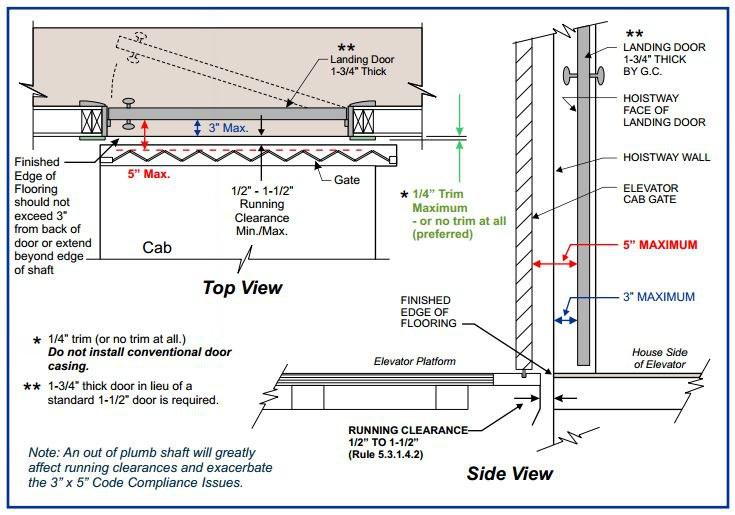One of the things holding back the platform lift industry is the inconsistent enforcement of safety standards. We are very happy that New York City has finally decided to implement periodic inspection procedures for vertical and inclined platform lifts in public buildings.
Prior to 2009 these lifts were only inspected by the city upon initial installation and never looked at again. In many cases, where an immediate need was not apparent, these lifts were not maintained and fell into disrepair.
In 2009 platform lifts were brought under the same inspection procedures as full commercial elevators. Periodic testing was always required by the safety standards but never enforced. Now the city is intent on enforcing the safety regulations. Annual testing is now required.
Unfortunately since platform lifts were not on active status in the database and records of ownership were outdated there was no way for the city to notify owners of this requirement. If an owner of a lift also owned a commercial elevator they no doubt became aware of the need to have their platform lifts tested just like their elevator, but many owners the Handi-Lift team has spoken to did not get the message.
We have attempted to contact all our customers who are currently in our maintenance plans, as well as those whose lifts we have not serviced in a long time, but in many cases letters were returned or did not get to the person responsible. Handi-Lift continues to devote significant resources to notifying all owners of lifts in our database that they face fines if they don’t address this issue in 2010. We are working first of all with our current maintenance customers to expedite inspections for 2009 and 2010 and help them avoid fines in the future.
The city’s website is not easy to negotiate to find these new requirements so please see attached documents we have compiled.
A company with someone who holds a NYC Agency Director’s license must perform the inspection called a Category 1 or a CAT 1 and if the lift is older than 5 years a Category 5 or CAT 5 (which is a full weight test). In addition, you must hire another company with an employee who holds an Agency Director’s license to witness the test. There are forms to file with multiple signatures and this whole process is time consuming and costly.
Handi-Lift is doing all we can to make it as easy as possible for our customers to comply with the new regulations. We have dedicated staff to assist you along the way. We can recommend companies to handle the third party witnessing portion of the work (we are not allowed to hire them for you or pay them directly) and we will handle the paperwork to get your lift properly inspected and filed as such with the city.
Of course we can offer significant discounts to those of you who are in our planned maintenance program. We can structure a program that includes future periodic inspections to keep you in compliance. Obviously, if you have not used your lift in some time a pre-inspection visit will be necessary to determine if your lift will be ready for the inspection. We will perform that pre-inspection visit and quote any needed repairs. This whole process will take time and you need to get your 2009 test and 2010 test done before the end of the year so there is no time to waste. Call us with any questions you may have and to schedule your tests. 800-432-(LIFT)5438.




